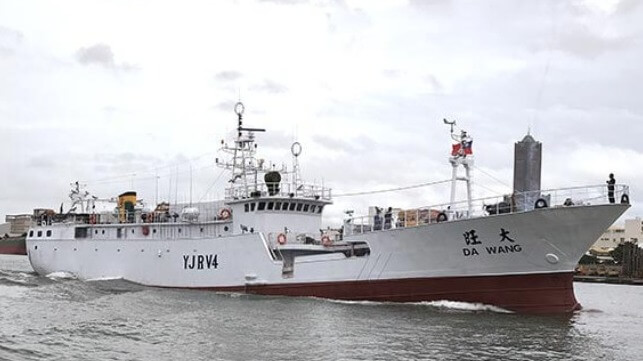CBP Continues Crackdown on Forced Labor on the High Seas

U.S. Customs and Border Protection is continuing its crackdown on forced labor in certain Pacific high seas fisheries. On Friday, CBP banned the importation of seafood produced the the Vanuatu-flagged longliner Da Wang, which is owned and operated by the Taiwanese company Yong Feng Fishery Limited. The decision finalizes a blanket "withhold release order" that CBP imposed on the vessel's products last year.
“CBP is entering the new year with a renewed commitment to investigating and enforcing the U.S. prohibition against importing goods made with forced labor,” said CBP Commissioner Chris Magnus. “We will again dedicate significant resources to rooting out the evil and inhumane practices of forced labor.”
Effective immediately, CBP units at all U.S. ports of entry will seize any seafood harvested by the Da Wang. The order is tied to the vessel itself and does not mention products from Yong Feng Fishery's other operations, if any. The firm has no other owned vessels listed in its Equasis record, but environmental NGO Greenpeace believes that it is linked to the parent company of a leading American tuna brand.
Taiwan's National Immigration Agency (NIA) has also concluded that at least one of the fishermen employed aboard Da Wang was a victim of human trafficking.
Da Wang was among several vessels flagged in a Greenpeace report on forced labor and human trafficking in early 2020. The NGO's correspondents identified many of the ILO signs of forced labor on board, including deception, violence, withholding of wages, abusive working conditions and excessive overtime.
Another ship mentioned in the same Greenpeace report, the Taiwan-flagged Lien Yi Hsing No. 12, has also seen its catch banned by CBP, along with the vessels Tunago No. 61 and Yu Long No. 2.

that matters most
Get the latest maritime news delivered to your inbox daily.
Greenpeace notes that all four of CBP's withhold release orders targeting the fishing industry have been for Taiwanese-owned or flagged vessels. In addition, at the end of 2020 the U.S. Department of Labor added Taiwan-caught fish to its List of Goods Produced by Child Labor or Forced Labor - a first in the list's history.
"There are legal, financial, and reputational risks to sourcing from companies that fail to uphold their human rights responsibilities to fishers. Bold, transformative changes are needed now to prevent future penalties that further disrupt the supply of tuna to U.S. retailers," said Andy Shen, senior oceans adviser at Greenpeace, in a statement last year.
